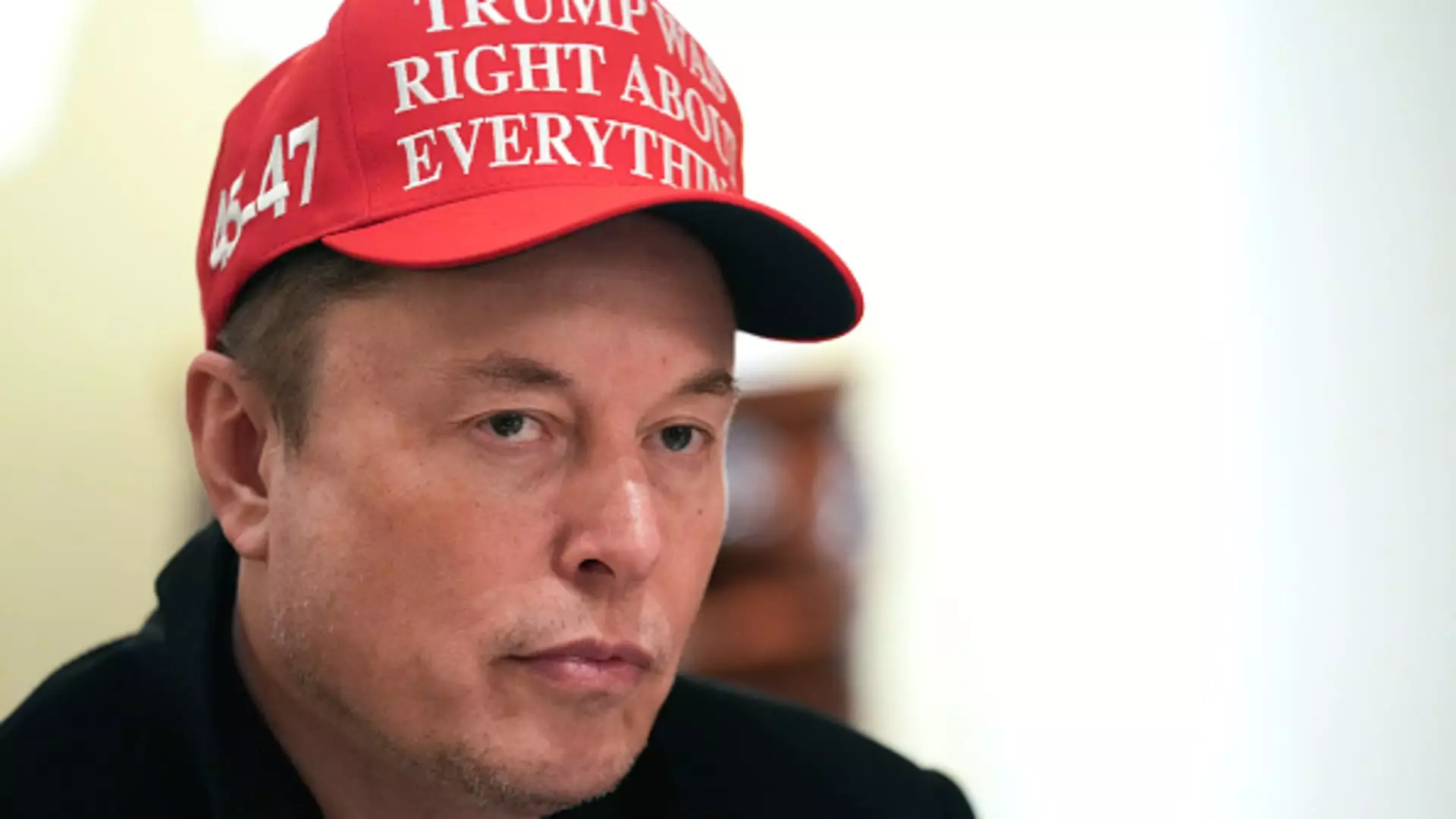Tesla, a leader in the electric vehicle market, has found itself in troubled waters as of late, with shares plummeting nearly 6% on a recent Monday. Closing at $227.50, the stock sits perilously close to its yearly low, a stark reminder of the challenging landscape the company currently faces. With a staggering 44% drop so far this year, Tesla has concluded its worst quarter since 2022, marking a significant juncture in its journey. Investors are beset by concerns, not just over the company’s financial health, but also the apparent erosion of its once-sterling brand reputation.
The stock’s meandering performance can be attributed in part to persistent distractions surrounding CEO Elon Musk. His involvement in controversial political currents has pulled the spotlight away from Tesla’s core operations and innovation. It is in these moments of turmoil that analysts have raised flags regarding the impact on brand perception, with many asking how the Tesla board intends to counteract the damage caused by Musk’s political engagements.
The Investor Sentiment
Amid these concerns, the investor community’s scrutiny is growing, reflected in the volume of inquiries directed towards the company. More than 300 questions have been raised concerning Tesla’s self-driving initiatives, and an alarming number focus on Musk himself. This duality—interest in the technological advancements versus concern over the leadership—paints a challenging picture of investor sentiment. Some questions reflect fear and concern, specifically regarding how Musk’s political affiliations might permanently alter the brand’s image.
The fallout from Musk’s financial maneuvers and political support has left some investors feeling uneasy. The backlash against his affiliations, particularly in Europe and parts of the U.S., has impacted Tesla’s sales and visibility in a market where public sentiment can translate directly into financial performance. The concern isn’t unfounded; surveys indicate a significant drop in consumer consideration, from 46% considering a Tesla in early 2022 to just 27% in March. That’s a staggering drop, highlighting the urgent need for a renewed focus and a powerful turnaround strategy.
The Competitive Landscape
China poses a particularly challenging obstacle, as it is increasingly adopting a “nationalistic” approach to consumerism. As local brands capture the attention of consumers, Tesla may find itself battling twice as hard to not only maintain its foothold but to also secure its profitability in the face of potential tariffs implemented under the Trump administration. Analysts have voiced concerns that this will necessitate a shift in strategy, including increased exports of Chinese-made vehicles, which may lead to price reductions that could further impact overall margins.
In these circumstances, maximizing profitability without diluting brand value is a formidable task. The Oppenheimer report notes that Chinese competition coupled with growing national pride is steering consumers away from foreign brands like Tesla. As Tesla’s perception deteriorates domestically and abroad, the need to recalibrate its sales strategy becomes more urgent than ever.
A Critical Juncture
As we await the forthcoming earnings call, critical evaluations are being made not just about the company’s performance but also about its leadership direction. Dan Ives from Wedbush Securities highlights the necessity for Musk to provide a compelling “turnaround vision” that aligns with shareholder expectations. Without a strategic pivot back towards product and brand revitalization, the risk of enduring damage becomes increasingly substantive.
The path forward for Tesla isn’t solely about mending a tarnished brand image but requires a bold and innovative approach to rally the company’s stronghold in a highly competitive market. As stakeholders look for reassurance, their hope lies in the transparency and forward-thinking strategies that Musk must articulate during the earnings call.
Future Trajectories
In light of the present circumstances, industry analysts speculate on the opportunities for Tesla to emerge from this period of weakness. By focusing on its core competencies—product development and customer feedback—it has the potential to galvanize support from a wavering consumer base. The company’s ambitious goals for autonomous driving and innovations in electric technology remain attractive; however, their success hinges on public perception and future sales performance.
Ultimately, Tesla may need to refocus its narrative towards one that ultimately champions innovation over controversy. Finding a balance between Musk’s public persona and the business’s ambitions could be the keystone for a successful resurgence. One thing is certain: the time for reflection and recalibration is now, as the stakes continue to rise in the cutthroat world of automotive technology.


Leave a Reply